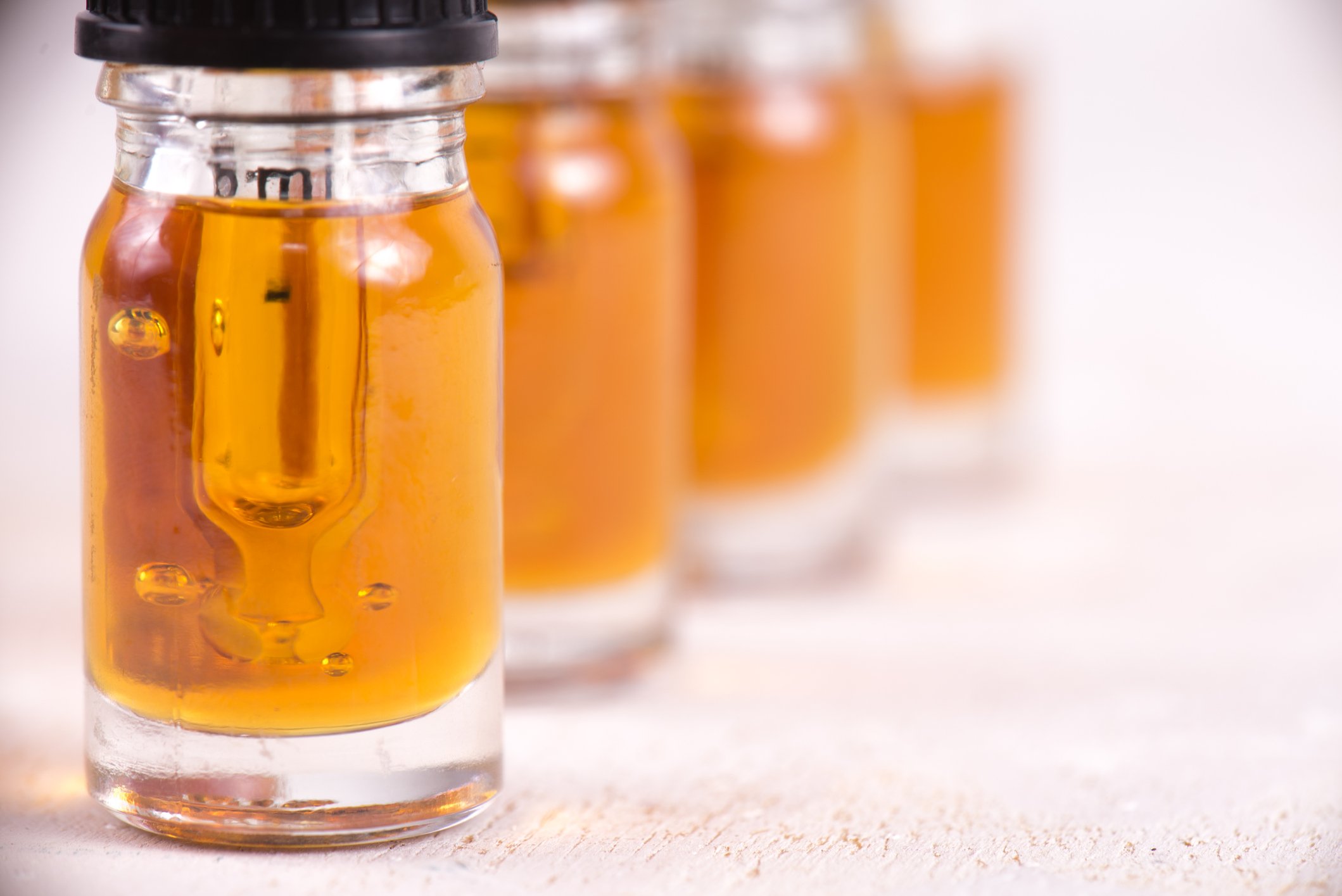Few industries are creating more buzz on Wall Street than legal marijuana. But within the legal cannabis industry is a trend that's growing leaps and bounds faster than the broader marijuana market. I'm talking about the popular cannabinoid known as cannabidiol (CBD).
Get to know the hottest trend on Wall Street: cannabidiol
As you may already know, CBD is the nonpsychoactive cannabinoid best known for its perceived medical benefits. This is a roundabout way of saying that, unlike tetrahydrocannabinol (THC), it's not going to get the user high, which makes it a more broadly appealing cannabinoid, relative to THC.

Image source: Getty Images.
CBD can be found in both the cannabis plant and hemp plant, but hemp is the more preferred source for extraction given its generally higher concentrations of CBD, relative to cannabis, and the fact that hemp is easier to grow and less costly. Further, the passage of the farm bill in December 2018 in the U.S. paved the way for legal industrial hemp production and the extraction of hemp-based CBD. Even prior to its passage, all but a select few U.S. states allowed the use, or prescription use, of CBD-based products for a variety of ailments.
Another reason CBD is so popular is because it's almost always found in derivative products, such as edibles, topicals, and infused beverages, to name a few. Derivatives are a considerably higher-margin product than traditional dried cannabis flower, making them an attractive addition to the portfolios of cannabis companies, as well as pure-play CBD stocks.
According to a recently released report from the Brightfield Group, U.S. sales for CBD -- the U.S. is the crown jewel of the cannabis and CBD movement, in terms of revenue -- should hit $23.7 billion by 2023, representing a compound annual growth rate of more than 100% over a five-year stretch. That's far and away a much quicker growth trend than the broader marijuana industry, which is why CBD stocks are all the rage on Wall Street.
This CBD leader just landed its largest distribution deal
Although the U.S. hemp-derived CBD market is very fractured in terms of market share, at least when compared to the expected market share split for dried cannabis flower in Canada, there's still one well-defined leader -- and that's Charlotte's Web Holdings (CWBHF +0.00%). With a focus on CBD-infused topicals, capsules, and oils, the company had its products in more than 6,000 retailers as of the end of March, up from 3,680 retail doors at the end of 2018.

Image source: Getty Images.
Although Charlotte's Web has been successful -- and profitable -- in getting its CBD products into new doors, and had secured four national retail distribution deals, it's still been looking for its first household retail partnership. But that all changed on Monday, July 29.
Prior to the opening bell, Charlotte's Web announced that it had signed a distribution deal with the largest national grocery chain in the country, Kroger (KR +1.78%). The deal will push Charlotte's Web's CBD products into 1,350 Kroger locations that span 22 states, including Arizona, Colorado, Michigan, Nevada, and Washington, which are all expected to be billion-dollar cannabis/cannabinoid markets. The deal also covers the Kroger family of stores, such as Dillon's, QFC, Fred Meyer, and Pick 'n Save, to name a few. According to the press release, Charlotte's Web's products will soon be sold in more than 8,000 retail doors across the country, which is more than double where it began the year.
It's worth pointing out that Charlotte's Web won't necessarily be the only hemp-derived CBD product in Kroger's aisles. Back in mid-June, Kroger and CV Sciences worked out a distribution deal of their own. CV Sciences is now supplying Kroger with its PlusCBD Oil Roll-Ons in 1,350 Kroger locations in 22 states, just like Charlotte's Web.
Be mindful of the FDA
Having landed its largest distribution deal to date, everything would seem to be clicking for Charlotte's Web. The company's full-year sales could wind up doubling in 2019 and again in 2020, and it nearly tripled the acreage used to plant hemp in 2019 to counter growing demand for hemp-derived CBD-infused product.
But there's just one problem: The U.S. Food and Drug Administration (FDA) doesn't think very highly of CBD -- at least not yet.

Image source: Getty Images.
Last week, the FDA made an example of Curaleaf Holdings (CURLF 0.90%) by sending a warning letter to its CEO, Joseph Lusardi, advising him that his company's CBD products were "misbranded drugs." In particular, the FDA took issue with Curaleaf's labels and/or claims that CBD was beneficial to select ailments. Following the issuance of this warning letter, which covered Curaleaf's lotions, pain-relief patches, tinctures, and vapes, CVS Health announced that it would pull Curaleaf's products from roughly 800 of its locations in eight states.
Let's remember that the FDA has only approved cannabis and/or CBD for two specific ailments, via GW Pharmaceuticals' Epidiolex. Beyond Epidiolex, CBD is not viewed as offering any medical benefits in the eyes of the FDA.
Although the FDA is reviewing CBD as a possible additive to food, beverages, and dietary supplements, and has promised to expedite its review process, there's been nothing encouraging from the regulatory agency to suggest that it trusts CBD as a drug. If anything, the FDA has hinted at more testing being needed to develop a broader safety profile for cannabidiol.
While favorable regulations for CBD would be welcome, CBD stock leaders like Charlotte's Web are likely going to be limited with regard to the scope of products they can carry for some time to come. Investors' eyes should remain focused on the FDA for further guidance in the CBD space.







